#cornelius tacitus
Photo


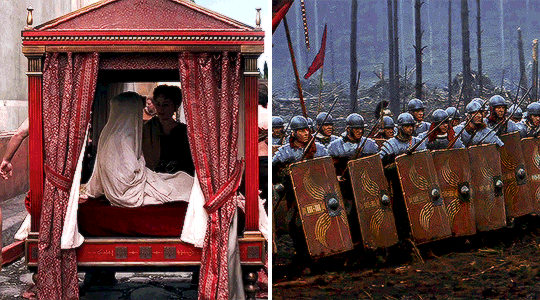


FAVORITE ERA 2/? ➜ THE ROMAN EMPIRE
They have plundered the world, stripping naked the land in their hunger… they are driven by greed, if their enemy be rich; by ambition, if poor… They ravage, they slaughter, they seize by false pretenses, and all of this they hail as the construction of empire. And when in their wake nothing remains but a desert, they call that peace. - TACITUS, THE AGRICOLA AND GERMANIA
#the roman empire#history#ancient history#perioddramaedit#historyedit#periodedit#userperioddrama#roman empire#hbo rome#rome hbo#gladiator#movie: gladiator#connie nielsen#indira varma#onlyperioddramas#tacitus#cornelius tacitus#roman history#gifs: mine#to try and sum up 300 years (if you are going with the unified roman empire and not when it splits and because east and west) is daunting#but I just felt like continuing on with the favorite era thing.#kinda fun#I also REALLY love that yellow outfit Indira wears for like 2.5 seconds in Rome it is gorgeous#ALSO the quote perfectly sums up the decayed state of Rome as an empire that stretched itself too far and was just an utter destructive#....destructive force during this time.#always a favorite time in history to me because so much was happening and shifting and it is also a set up for the middle ages
829 notes
·
View notes
Text

David Rowe
* * * *
Nihil deorum honoribus relictum, cum se templis et effigie numinum per flamines et sacerdotes coli vellet. Ne Tiberium quidem caritate aut rei publicae cura successorem adscitum, sed quoniam adrogantiam sævitiamque eius introspexerit, comparatione deterrima sibi gloriam quæsivisse. Etenim Augustus paucis ante annis, cum Tiberio tribuniciam potestatem a patribus rursum postularet, quamquam honora oratione, quædam de habitu cultuque et institutis eius iecerat quæ velut excusando exprobraret. ceterum sepultura more perfecta templum et cælestes religiones decernuntur.
No honor was left for the gods, when Augustus chose to be himself worshipped with temples and statues, like those of the deities, and with flamens and priests. He had not even adopted Tiberius as his successor out of affection or any regard to the State, but, having thoroughly seen his arrogant and savage temper, he had sought glory for himself by a contrast of extreme wickedness. For, in fact, Augustus, a few years before, when he was a second time asking from the Senate the tribunitian power for Tiberius, though his speech was complimentary, had thrown out certain hints as to his manners, style, and habits of life, which he meant as reproaches, while he seemed to excuse. However, when his obsequies had been duly performed, a temple with a religious ritual was decreed him.
—Gaius Cornelius Tacitus, Annales lib i, cap x (117 CE)
2 notes
·
View notes
Text
So I was reading some book about Agrippina and I realised that Marcus Claudius Marcellus is such a balanced name. The core of it is a nice round heavy Claudius and there's an exciting interesting bright Marcus on either side. I think I could balance this name on my finger.
#hear me out#this is so true#similar to how publius cornelius tacitus is grape soda orange soda and lemon-lime soda#yes in that order#listen i have a lot of really strong opinions when it comes to roman names#roman names#ancient rome#marcellus
5 notes
·
View notes
Text
It belongs to human nature to hate those you have injured.
Publius Cornelius Tacitus
3 notes
·
View notes
Text
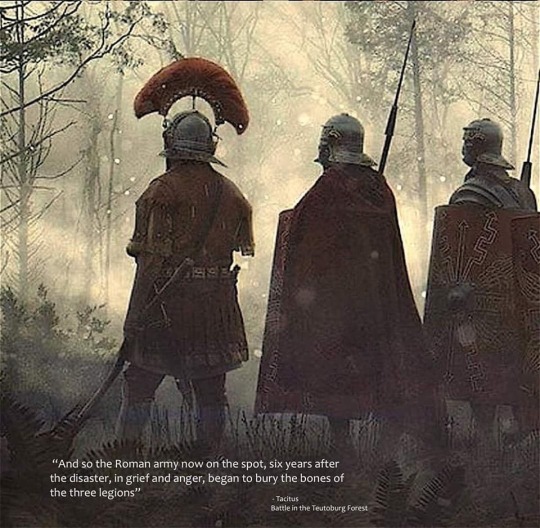
#quote#publius cornelius tacitus#teutoburg forest#legio#legio xvii#legio xviii#legio xix#rome#roman#spqr
1 note
·
View note
Text
An eminent Roman historian whose writings illuminate the intricacies of ancient Rome, Tacitus offered unparalleled glimpses into Roman society, politics and culture. His vivid narratives and moral reflections invite us to ponder the complexities of power, morality and the human condition.
16 notes
·
View notes
Text
Equally there is the irony that one of the most famous histories of the Han was written by a woman:
One must also note that the existence of women historians and their great and sweeping influence no more than the Goddess sweeps away misogyny in all its forms. Ban Zhao, like Anna Comnena, owed her status to connections to the Imperial family and leveraged it for a history of great skill and depth on the family she was a part of. The history she wrote was of the Western, or former Han, in the wake of the brief hiatus caused by the reign of Emperor Wang Mang. It stands as a classic of Chinese history and literature and means that her influence is a very similar one to those of Publius Cornelius Tacitus or Gaius Seutonius Tranquilitus.
This is also a point worthy of emphasis, that all histories and all cultures have their bits of nuance and complexity like this. Famously ultra-misogynistic Confucian literary and bureaucratic culture owed one of its greatest classics to the very people they worked so hard to keep in a third-rate position at best. No more than Western cultures did they accept that this was a contradiction, first, and that the contradiction mattered very greatly.
Equally one must also note that all history is full of these kind of anomalies that make it a very living thing, and that to judge cultures by their self-proclaimed ideological views is to blind oneself to the much deeper realities these cultures live and abide by.
#lightdancer comments on history#women's history month#asian history#chinese history#han dynasty#ban zhao
4 notes
·
View notes
Text
Runic Divination: A Modern Invention
It is a popular belief (especially in certain Neo-Pagan and Heathen circles linked to Neo-Nazism and White Supremacy) that the runes of Elder Futhark:
Were the runes primarily used by the Vikings and represent a direct link to Viking ancestors
Have been used for divination for over a thousand years, representing a long and unbroken tradition, and that the way we use them now is the way the Norse used them in antiquity
Have ancient esoteric meanings that have remained unchanged through the passage of time
Unfortunately, none of these statements are true.
Around 98 AD, a Roman known as Publius Cornelius Tacitus wrote what was essentially an ethnological study of Germanic peoples entitled Germania. In Chapter X, he describes a system of divination used by one particular Germanic Tribe, an observation which later became the basis of what we consider today as runecasting and of the contemporary usage of Elder Futhark as an oracle:
"To divination and casting of lots, they pay attention beyond any other people. Their method of casting lots is a simple one: they cut a branch from a fruit-bearing tree and divide it into small pieces which they mark with certain distinctive signs and scatter at random onto a white cloth. Then, the priest of the community if the lots are consulted publicly, or the father of the family if it is done privately, after invoking the gods and with eyes raised to heaven, picks up three pieces, one at a time, and interprets them according to the signs previously marked upon them."
It is important to note that, at this time, the full inventory of the Elder Futhark alphabet was not yet finalized due to the fact that the sound inventory of Proto-Norse was not yet finalized. It wasn't until around 400 AD that all 24 runes can be solidly attested to within the archaelogical record. While it is probable that some letters of Elder Futhark were likely being used at the time Tacitus wrote his Germania, but it is extremely unlikely that the symbols carved upon the wooden tiles were Elder Futhark.
Additionally, there is simply no archaelogical or historical evidence beyond Tacitus' claims suggesting that the Proto-Norse or Norse used runes as a system of divination at all. Certainly the runes were used in magical contexts; there are many examples of runes and bindrunes being used as talismans and sigils inscribed on weapons, shields, jewelry etc. within the archaelogical record, but nothing suggests that these runes were ever used for divination as we know and use it today.
It is also important to note that Elder Futhark was not the alphabet used by the Vikings, as most proponents of runecasting claim; Elder Futhark was in use from the second century to the late 8th century (700s) in Scandinavia, when it was simplified to the Younger Futhark. The Younger Futhark WAS contemporaneous to the Vikings, and roughly corresponds to the Viking Age (793-1066 CE). This disproves the claim that the Elder Futhark is a direct link to Viking Ancestors -- the Vikings were using a different alphabet. It would be more accurate to say that the Elder Futhark runes linked the Vikings to THEIR Norse, Proto-Norse, and Germanic ancestors.
Finally, the meanings associated with the runes of Elder Futhark as we know them today were actually derived in modern times from the Norwegian, Icelandic, and Anglo-Saxon rune poems. None of these poems were written in Elder Futhark. The current theory proposed by modern linguists is that the Rune Poems were mnemonic devices used to help people remember the order, names, and, most importantly, the sounds of each letter of the alphabet. In other words, the Rune Poems were the equivalent to nursery rhymes.
With this new context, the use of nursery rhymes to assign esoteric meanings or properties to each rune seems a bit odd. Consider how silly it would be if, a thousand years from now, a group of people got a hold of one of those long posters found in elementary school classrooms meant to help children remember the order of the alphabet and decided that not only did the letter A definitively meant 'apple' and B definitively meant 'book', but that we as a society used these letters in order to divine the unknown.
Additionally, if the runes were preserving supposedly ancient meanings, we would expect these meanings to remain consistent throughout time with no variations. However, if the Rune Poems were instead preserving the phonetics associated with each runic letter by linking them to words beginning with that particular sound, we would see variation in the poems due to the linguistic variation of meaning.
And variation in meaning is exactly what we can observe between the Rune Poems; for example, the specific word linked to the phoneme represented in the stanzas attributed to Uruz talk about dross, a by-product of iron smelting within The Norwegian Rune Poem, about rain within The Icelandic Rune Poem, and then finally an aurochs in The Anglo-Saxon poem. The same can be observed for the stanzas attributed to Kenaz: the Norwegian and Icelandic rune poems refer to ulcers (likely derived from the Proto-Germanic *kaunan), while the Anglo Saxon refers to a torch (likely derived from Proto-Germanic *kenaz).
As an aside -- from examining the Rune Poems and comparing them to the commonly used modern meanings attributed to each rune, it is exceedingly obvious that whoever did assign said meanings primarily used The Anglo-Saxon poem as a jumping-off point.
In summary, Elder Futhark runes as we know them do not represent esoteric, magical concepts; the modern day meanings assigned to them were derived from translations of nursery rhymes meant to help people learn the Elder Futhark alphabet and, in some cases, were not the magical meanings ascribed to them by those who originally used them. Elder Futhark was not used by the Vikings and is not a direct link to Viking ancestors as many authors claim. Finally, there is no archaeological or historical evidence to suggest the runes were used for divination, nor was there a long and unbroken tradition of runecasting. The use of Elder Futhark as a tool of divination is a purely modern invention that dates back, at most, to the 1970's. The runes as they are used today are not 'ancient' nor is there a 'tradition' of using the runes for divination spanning back centuries, representative of an 'authentic and 'sacred' and 'holy' practice linked to Vikings.
As far as I can tell, Ralph Blum was the first one to write about the runes as a system of divination. Eddred Thorsson (Otherwise known as Stephen Flowers, who studied Runology, Germanic Languages, and Medieval Studies in an academic context), a known racist and white supremacist strongly linked to 'folkish' beliefs, Odinism, Asatru, and the Neo-Nazi Asatru Folk Assembly (a hate group recognised by the Southern Poverty Law Centre), expanded upon Blum's work and incorporated many Neo-Nazi beliefs based upon volkisch & Nazi doctrine, and is responsible for the perpetuation of these three myths (and quite a few others) into the present day with the publication of his books regarding runes. The publishing rights to Flowers/Thorsson's books are held by the Asatru Folk Assembly. Much of Flowers/Thorrson's assertions regarding the usage of runes is ultimately just unverified personal gnosis unsupported by archaeological or ethnographic evidence.
The association between runes and Nazism is certainly not new. The idea that the Germanic race (and its descendants) was superior to all others was central to Nazi ideology, and German ultranationalists scoured the archaelogical record to find proof of a link to a mythic 'Aryan' Heritage. They particularly liked the Armanen pseudo-Runes (the meanings of which miraculously were revealed to a man named Guido von List in 1902 after suffering temporary blindness following cataract surgery), but ultimately they shifted their attention to the appropriation of the runes of the Elder Futhark. The most infamous rune used by the Nazis is Sowilo, the 's' rune representing the sun, which was renamed the 'Siegrune' (Victory rune) and was used as a symbol for Hitler's Schutzstaffel (ie. The SS). Other runes that were misappropriated include Othala (inheritance) which was used as a symbol for the mantra 'Blud und Boten' (Blood and Soul), and Tiwaz (Tyr), which became a symbol for war and struggle. To claim that the runes represent a long-standing tradition and link to 'the ancestors' is straight up Nazi rhetoric.
This doesn't make the runes any less useful as an oracle! Oracles and divination help us find meaning in our lives as well as help us explain the universe around us, especially when we're faced with the murky unknown or with things that cannot otherwise be explained by other models or paradigms of rationalization. Using the runes to seek out answers to otherwise 'unknowable' questions is actually a method of reframing and recontextualizing our experiences via the viewpoint of an objective outsider, providing new insight and promoting introspection. This is especially helpful if what we 'learn' might not be things we want to hear or think about, especially concerning ourselves. It also helps us elevate the subconscious into the conscious, and makes us aware of things we didn't otherwise give much thought to due to our tunnel-vision view and tendency to focus only on the things we think are important or relevant.
The lesson to be learned from this is that it is important to critically examine so called 'traditions', especially ones claiming to be ancient and representative of 'ancestral' practices -- oftentimes the people perpetuating such beliefs have done so for a reason. Unfortunately, because Flowers/Thorsson's work is so prevalent within the pagan community, and because so many sources regarding runic divination end up linking back to his work, the practice of runecasting and using runes for divination has become tainted with Nazi rhetoric. It is for this reason that I am highly critical of any source listing the 'meanings' of the runes.
So… what can you do about this? Don't buy Flowers/Thorrson's books, obviously. Be critical of all sources when researching runes. Evaluate whether or not this person did their own research, or simply took Flowers/Thorrson's work at face value. Laugh openly at anyone who practices Rune Yoga.
My recommendation to rune enthusiasts is to study the Rune Poems and research the etymology of each rune word and come up with your own meanings and extensions, just like you would when researching the meaning of tarot cards. By doing this, you'll probably also find that you feel even more connected to them than before.
And, above all else, make your space an unsafe space for Nazis.
ᚠᚢᚲ ᚾᚨᛉᛁᛊ
References:
Andersen, Harry. "Three Controversial Runes in the Older Futhark (2)". North-Western Language Evolution, vol. 4, no. 5, 1985, pp. 3-22.
Antonsen, Elmer H. "The Proto-Norse System and the Younger Futhark". Scandinavian Studies, vol. 35, No. 3, 1963, pp. 195-207.
Dickins, Bruce. Runic and Heroic Poems of the Old Teutonic Peoples. Cambridge University, 1915.
Hoppadietz, Ralf, and Reichenbach, Karin. "In Honor of the Forefathers: Archaelogical Reenactment between History Appropriation and an Ideological Mission. The Case of Ulfhednar." Reenactment Case Studies: Global Perspectives on Experiential History, edited by Vanessa Agnew, Sabine Stach, and Juliane Tomann. Routledge, 2023.
Imer, Lisbeth. "How the Nazis abused the history of runes." ScienceNordic. 13 October 2018. Translated by Frederik Appel Olsen. https://sciencenordic.com/denmark-forskerzonen-history/how-the-nazis-abused-the-history-of-runes/1459227. Accessed 28 January 2023.
Knirk, James E. "Runes: Origin, development of the furthark, functions, applications, and methodological considerations." The Nordic Languages, vol. 1, 2002, pp. 634-648.
Southern Poverty Law Center. "Asatru Folk Assembly." SPLC: Southern Poverty Law Center. https://www.splcenter.org/fighting-hate/extremist-files/group/asatru-folk-assembly. Accessed 28 January 2023.
Southern Poverty Law Center. "Neo-Völkisch." SPLC: Southern Poverty Law Center. https://www.splcenter.org/fighting-hate/extremist-files/ideology/neo-volkisch. Accessed 28 January 2023.
Tacitus, Cornelius Publius. Germania. AD 98. Translated by Alfred John Church and William Jackson Brodribb, Macmillan & Co., 1869.
#runes#runecasting#norse paganism#elder futhark#norse#witchcraft#witchblr#vikings#local queer goose here to set the record straight#fuck nazis
32 notes
·
View notes
Text
was reminded against my will of the tik tok “problematic authors” list & still can’t get over the fact it had actual currently alive sexual abusers next to 1st century roman historian cornelius tacitus
5 notes
·
View notes
Text
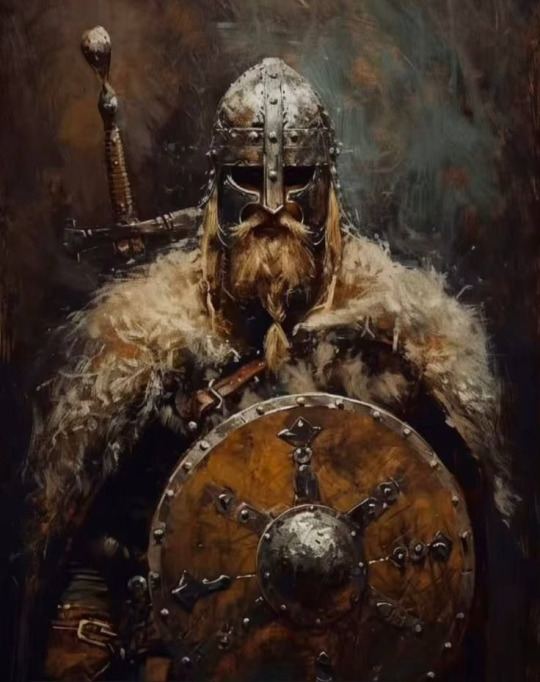
« J'accepte le point de vue de ceux qui pensent que les peuples de Germanie n'ont jamais été souillés par des mariages interethniques, et se distinguent en tant que race distinctive, pure et unique en son genre. D'où le type physique, si l'on peut généraliser sur une population aussi vaste, est partout le même - yeux bleus sauvages, cheveux roux et grandes carrures qui excellent seulement dans l'effort violent. »
Cornelius Tacitus [extrait de Germania]
1 note
·
View note
Video
youtube
Tacitus, Jesus, and the Nero Mythos | Chrissy Hansen
COMMENTARY:
A question I never had until recently about the whole Christian movement was why Roman society hated Christians, It was a given, The fact that Nero was able to change the subject from his complicity in the arson of 64, if there was any, to the charms of employing Christians as human garden torches for the parties of the Roman smart set. I began my inquiry into Cornelius as the author of the Gospel of Mark in 1990 and I knew that it was dangerous to be a Christian at the time Cornelius assembled the narrative and how the written testament was conveyed more or less covertly by the soldiers in the Legions who ware telling the story of Jesus around campfires on the march as war stories the soldiers of the 10th Legion remembered from their tour of duty in the Galilee, :There was this one Jew who had a huge following in the country side who could walk on water that we were worried about, but it turned out the Jerusalem Establishment took him out as a bigger threat to them than to us". I assumed that the Gospel of Mark was a systematic assembly of these war stories into a central file in bits and pieces until the Holy Spirit brought Peter to Cornelius, a player from inside Team Jesus who could string all the bits and pieces with what was going on inside the head quarters
The point of this that Cornelius thought Jesus was big medicine in spite of the hatred of the Roman elite. Tacitus grew up hating :that tribe of Christians". He was only eight years old when Rome burned and Nero launched his Christian pogrom, He was expected to hate Christians as a general principle and its always fun to be part of a lunch mob, except for the guest of honor, so to speak, Southern evangelical Christians would get themselves all worked up at a Sunday afternoon church picnic and go out and hand a couple of uppity niggers and dance around a bonfire in the shape of a cross. That's basically what's driving the Trump campaign in a political party with a candidate from Generation Z like Nikki Haley, locked and loaded to be like Pete Buttigieg or Michael Steele if seh gets the job running the Oval Office. Nero was taking advantage of exactly that same political reality.
The question finally occurred to me "Why:?:
well, it comes down to conjunction of the term Christian being introduced by Tiberius in 33 CE to a Senate and society that hated and feared Tiberius because of the execution of Sejanus, Everything associated with Tiberius was hated, including the tribe of Christians. It is clear from Tertullian's account of the effect of Pilate's lost euangelion regarding the Talking Cross had on Roman attitudes towards Christians, Tiberius had to threaten the Christian Haters with executive action ot protect the Christians The Roman soldier in Judea were calling these Jewish Jesus Followers ;christians" because they all referred to their Divine Leader, Jesus Christ, Super Star "Messiah"< which, of courst, is Christ to us, These Christians were a factor in the Jewish politics, because they were freaking out the board of directors of Second Temple, Inc and, to a lesser extent, Harod Antipas, who stepped on his dic when he cut off the had of John the Baptist.
For the Roman soldiers, "Christian" was a neutral term, like "Charley" for Vietnam vets or Rastafari for ,the DC MPD, But when it got to Rome, it became tainted by its introduction as a Tiding of Joy, or euangelion, but Tiberius.
and that's the important historic bench mark I get from Tacitus and "The Tribe of Christians", I don't do any original scholarship: it is hard for me to read anymore and I don't have any need to re-invent the wheel, Chrissy Hansen's research into Tacitus is practically incomprehensible to me, but she's gone about it faithful to the protocols of the genre She has basically confirmed my essential thesis that Tacitus grew up hating Christians and I bet that if she is to take into account Tiberius and Sejanus in her profile of Tacitus, her scholarship with lift itself to a brilliant new level.
The reason they didn't call it "The Gospel According to Cornelius" is because it would have got him crucified.
0 notes
Note
Can you tell more about the warband and its members? What's the hierarchy like? Do they have traitor guardsmen?
Here's some scattered info about warlord Tacitus, various members, and a brief description of their home planet.
To discuss hierarchy, first establish some history. The warband was originally founded by Tacitus and a couple other Ultramarine captains who shared similar doubts about the Imperium during the Heresy. Yes, they were loyalists turned traitor! They kept their allegiance lowkey at that time, but when the traitor forces were pushed into the Eye of Terror, Tacitus and the other ex-Ultramarines followed suit.
So Tacitus being the founder, is the leader. Followed by one of his subordinates from his original company, Tiberius, as his second in command. All other captains answer to him if Tacitus is unavailable. Then comes the Inner Circle of veterans who are what remains of the original companies that defected along with Tacitus. Over the centuries, the Inner Circle has dwindled due to people leaving the warband or dying in combat, but they strictly remain as those original ex-Ultramarines. The only exception is the Bloodhound, the warband's grand sorcerer who is an ex-Howling Griffon. With his power, the Bloodhound is effectively the third highest ranked person in the warband. He also trains and leads any other psyker/sorcerer of the group.
The warband likes to keep things organized, so they still follow a similar company-captain structure for their forces. Cornelius is one such captain. A couple of those original ex-Ultramarines remain high ranking captains as well. With their home planet being an ocean world mixed with dense forests, there are groups who specialize in deep sea expeditions and hunting in the forests respectively.
There are no doubt plenty of traitor guardsmen, human axilla, serfs, and regular humans who assist the warband. They're a mix of the descendants of the serfs/guard from the 30k era and various slaves/recruits they managed to find throughout the centuries. These people are the ones who mainly patrol the coasts and the edges of the forests to protect the settlements from any warp creature who ventures too near. The warband is only called over if they have a problem only an astartes can solve. Usually, a sorcerer called the Bestiary helps in all manners of taming or hunting warp creatures, land or sea.
Other than that, they also have a knight house under their ranks, though they've certainly seen better days. Needless to say, Tacitus was very efficient in settlement building and gathering power during his peak thanks Guilliman genes. The planet is well developed and humans relatively happy (or as happy as they can be living in the Eye), even if the warband is in a downwards slump right now.
Of course, that all starts to slowly change once they ally with some Iron Warriors. And Forrix eventually joining their ranks at Tacitus' side certainly helps them rebuild :]
#there's still some characters who don't have names or are barely developed so i wont mention them yet#the Warband#Warlord Tacitus#Tiberius#the Bloodhound#zedtalks#warhammer 40k#wh40k#ocs#warhammer 40k ocs
24 notes
·
View notes
Text
Travel Log: The Circus Maximus
Standing in front of the Circus Maximus I had a number of different feelings. My strongest feeling was a deep sense of respect. My respect came from the fact that this historic venue had been a witness to countless thrilling events over the centuries. I gaze at the remnants of the chariot racing track, and I remember some of Tacitus word that described the location: "At the heart of the field there stood an island surrounded by structures… Nestled beneath the Palatine Hill lay the grand Circus Maximus." Delving into John H. Humphreys research shed light on the workings of chariot racing and the vital role that the Circus Maximus played in Roman culture. His words lingered in my thoughts as I envisioned the crowds and thundering chariots; "The Circus Maximus stood as Romes premier venue for chariot races boasting a capacity of up to 150,000 spectators." As I'm Strolling along the spina the central barrier of Circus Maximus, I'm able to hear the echoes of citizens cheering as chariots race past me at lightning speed. Tacitus's description of these brave people on chariots came to mind: "The charioteers of Circus Maximus were hailed as champions, their triumphs celebrated with displays of opulence and admiration." I ended up wandering through the remains of the starting gates and seating areas. Humphreys study revealed new insights and showed the political importance of chariot racing during Roman times: "The races held at the Circus Maximus were not for entertainment but also reflected the political dynamics of Roman society." This helped shed light when it comes to life in the capital city and the more intricate aspect that came from living in that time period. Surrounded by the remnants of Circus Maximus, I felt a connection to history that I hadn't experienced. I heard Tacitus words as they resonated within me: "The Circus Maximus stood as a symbol of power and prestige showcasing the grandeur and ambition of the imperial city." Walking away from Circus Maximus I carried with me an admiration for the tapestry that is Roman history. Within its weathered stones and faded splendor I discovered a link to an era past. An era where chariots thundered and empires thrived and declined. As Tacitus aptly stated, "History serves as a witness to time passing; it sheds light on reality invigorates memory offers guidance, in life and brings us tales from times."
Tacitus, Publius Cornelius. Annals. 1st century AD
Humphrey, John H. Roman Circuses: Arenas for Chariot Racing. 1986
0 notes
Text
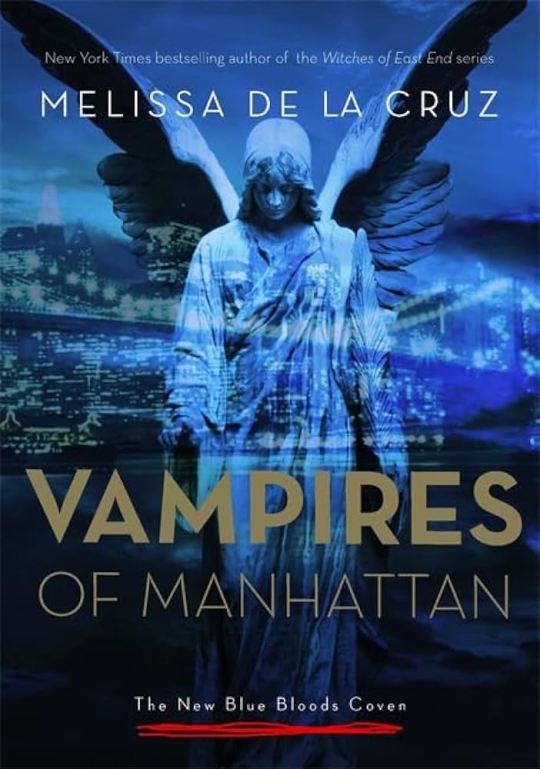
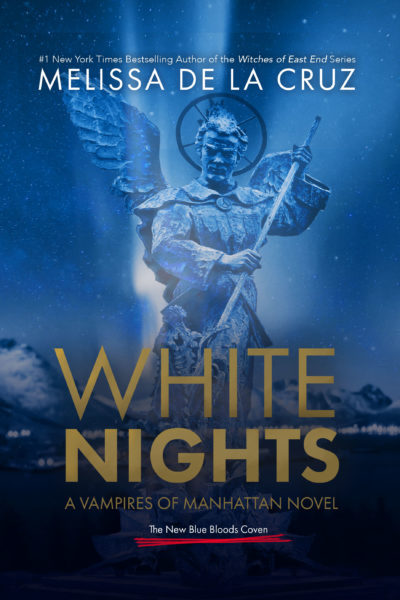
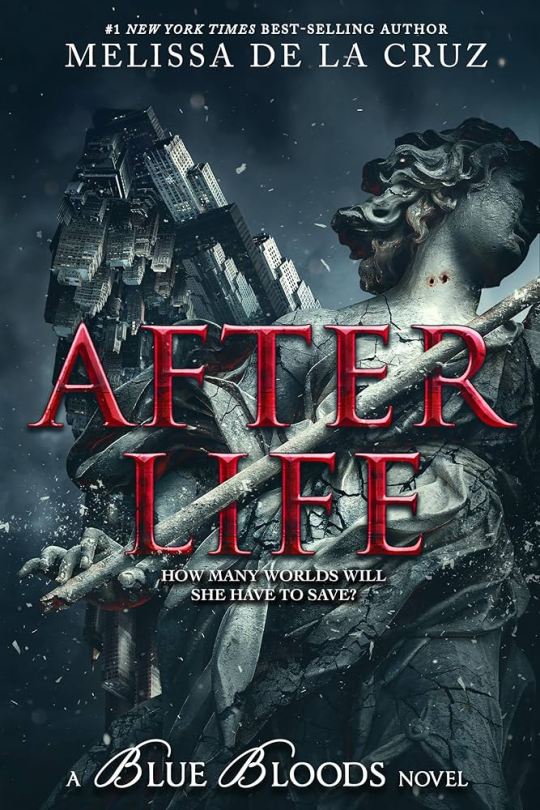
Antike (ca. 2000 vChr. bis ca. 500 nChr.)
Gilgamesch-Epos
Homer: Ilias, Odyssee
Äsop: Fabelsammlung
Caesar, Gaius Iulius: Der gallische Krieg
Vergil: Aeneis
Ovid: Metamorphosen
Tacitus, Publius Cornelius: Germania
Augustinus, Aurelius: Bekenntnisse
Herodot: Historien
Mittelalter (500-1500)
Beowulf
Murasaki Shikibu: Die Geschichte vom Prinzen Genji
1001 Nacht
Nibelungenlied
Gottfried von Straßburg: Tristan
Wolfram von Eschenbach: Parzival
Chaucer, Geoffrey: Die Canterbury-Erzählungen
Renaissance (1500-1600) und
Barock (1600-1720)
Boccaccio, Giovanni: Das Dekameron
Brant, Sebastian: Das Narrenschiff
Machiavelli, Niccolö: Der Fürst
More, Thomas: Utopia
Rabelais, Franois: Gargantua und Pantagruel
Cervantes Saavedra, Miguel de: Don Quijote
Grimmelshausen: Der Abentheurliche Simplicissimus Teutsch
Aufklärung (1720-1785)
Hobbes, Thomas: Leviathan
Fielding, Henry: Die Geschichte des Tom Jones, eines Findlings
Voltaire: Candide
Sterne, Laurence: Leben und Ansichten von Tristram Shandy, Gentleman
Rousseau, Jean-Jacques: Emile oder Über die Erziehung
Kant, Immanuel: Kritik der reinen Vernunft
Sturm und Drang (1765-1790)
Goethe, Johann Wolfgang von: Die Leiden des jungen Werthers
Bürger, Gottfried August: Münchhausen
Klassik (1786-1832)
Defoe, Daniel: Robinson Crusoe
Swift, Jonathan: Gullivers Reisen
Goethe, Johann Wolfgang von: Die Wahlverwandtschaften
Kleist, Heinrich von: Michael Kohlhaas
Romantik (1798-1835)
Arnim, Achim von/Brentano, Clemens: Des Knaben Wunderhorn
Grimm, Jacob und Wilhelm: Kinder- und Hausmärchen
Austen, Jane: Stolz undVorurteil
Eichendorff, Joseph Freiherr von: Aus dem Leben eines Taugenichts
Andersen, Hans Christian: Märchen
Gogol, Nikolai: Tote Seelen
Balzac, Honore de: Verlorene Illusionen, Glanz und Elend der Kurtisanen
Bronte, Charlotte: Jane Eyre
Bronte, Emily: Die Sturmhöhe
Huge, Victor: Die Elenden
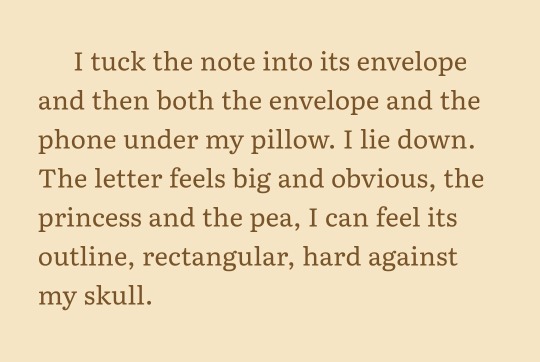
Biedermeier und Vormärz (1815-1848)
Heine, Heinrich: Buch der Lieder, Deutschland. Ein Wintermärchen
Büchner, Georg: Lenz
Droste-Hülshoff, Annette von: Die Judenbuche

Moderne (1850-1968)
Melville, Herman: Moby Dick
Beecher Stowe, Harriett: Onkel Toms Hütte
Keller, Gottfried: Dergrüne Heinrich
Dickens, Charles: Große Erwartungen
Dostojewski, Fjodor: Der Idiot
Tolstoi, Lew: Krieg und Frieden
Mark Twain: Tom Sawyers Abenteuer
Storm, Theodor: Der Schimmelreiter
Wilde, Oscar: Das Bildnis des Dorian Gray
Lagerlöf, Selma: Gösta Berling, Nils Holgersson
Fontane, Theodor: Effi Briest
Mann, Thomas: Buddenbrooks, Der Zauberberg
Proust, Marcel: Auf der Suche nach der verlorenen Zeit
Joyce, James: Ulysses
Babel, Isaak: Die Reiterarmee
Fitzgerald, Francis Scott: Der große Gatsby
Kafka, Franz: Der Prozess, Das Schloss
Woolf, Virginia: Mrs. Dalloway
Hesse, Hermann: Der Steppenwolf, Das Glasperlenspiel
Döblin, Alfred: Berlin Alexanderplatz
Remarque, Erich Maria: Im Westen nichts Neues
Roth, Joseph: Hiob, Radetzkymarsch
Traven, B.: Das Totenschiff
Fallada, Hans: Kleiner Mann - was nun?
Mann, Klaus: Mephisto
Steinbeck, John: Früchte des Zorns
Orwell, George: Farm der Tiere
Machfus, Nagib: Die Midaq-Gasse
Camus, Albert: Die Pest
Greene, Graham: Der dritte Mann
Dürrenmatt, Friedrich: Der Richter und sein Henker
Nabokov, Vladimir: Lolita
Tomasi di Lampedusa, Giuseppe: Der Leopard
Frisch, Max: Homo Faber
Aitmatow, Tschingis: Dshamilja
Grass, Günter: Die Blechtrommel
Solschenizyn, Alexander: Ein Tag im Leben des Iwan Denissowitsch
Wolf, Christa: Der geteilte Himmel
Bulgakow, Michail: Der Meister und Margarita
Garcia Märquez, Gabriel: Hundertjahre Einsamkeit
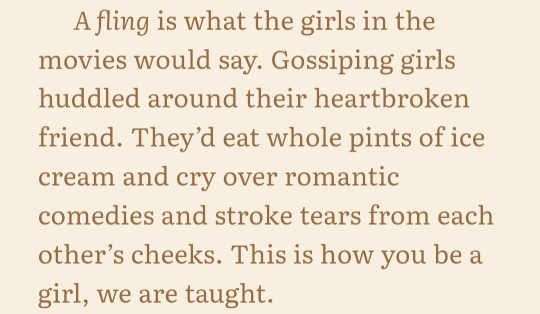
Gegenwart (ab 1968)
Lenz, Siegfried: Deutschstunde
Kertesz, Imre: Roman eines Schicksallosen
Eco, Umberto: Der Name der Rose
Jelinek, Elfriede: Die Klavierspielerin
Kundera, Milan: Die unerträgliche Leichtigkeit des Seins
Morrison, Toni: Menschenkind
Vargas Llosa, Mario: Das Fest des Ziegenbocks

0 notes
Text
"Formerly we suffered from crimes; now we suffer from laws."
-Cornelius Tacitus
0 notes
Text
Cornelius Tacitus – Germania-Agricola (2023)
Ünlü Romalı hatip Cornelius Tacitus’un kariyeri Vespasianus döneminde başladı, Titus ve Domitianus dönemlerinde kesintisiz olarak devam etti.
Yaşadığı sürede Roma İmparatorluğu’ndaki bazı değişimlere şahit oldu.
Örneğin Roma kenti önemini kaybetmeye başlamıştı.
Çünkü imparator, şehre artık her zamankinden daha az sıklıkta ve artık bir ev sahibi olarak değil de bir ziyaretçi gibi…
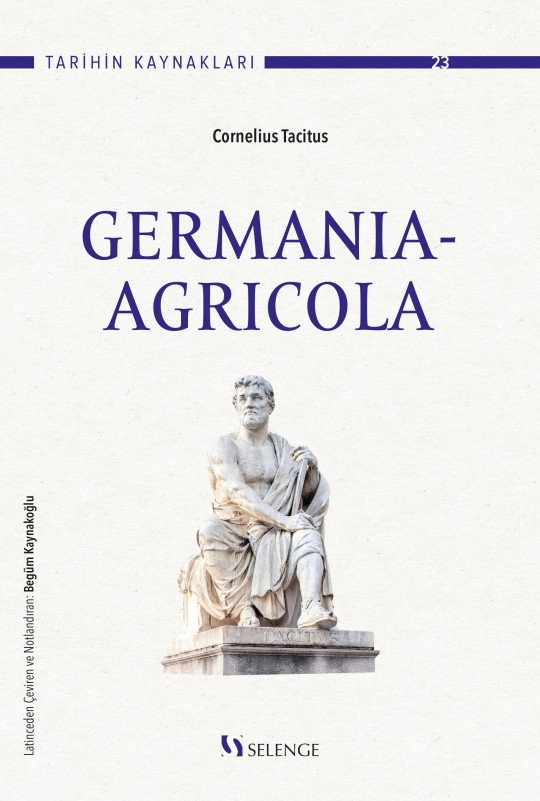
View On WordPress
0 notes